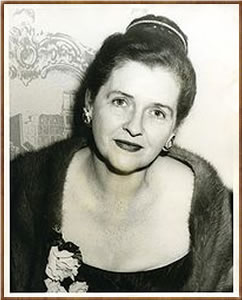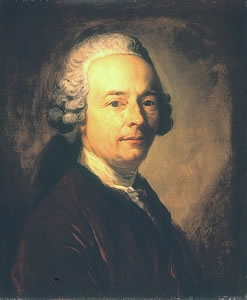De Britse dichter en schrijver Anthony Burgess werd geboren op 25 februari 1917 in Manchester, Engeland. Zie ook mijn blog van 25 februari 2007 en ook mijn blog van 25 februari 2008 en ook mijn blog van 25 februari 2009.
Uit: ReJoyce
“‘I start thus book on January 13th, 1964 – the twenty-third anniversary of the death of James Joyce. I can think of no other writer who would bewitch me into making the beginning of a spell of hard work into a kind of joyful ritual, but the solemnisation of dates came naturally to Joyce and it infects his admirers. Indeed, this deadest time of the year (the Christmas decorations burnts a week ago, the children back at school, the snow come too late to be festive) is brightened by being a sort of Joyce season. It is a season beginning in Advent and ending at Candlemas. January 6th is the Feast of the Epiphany, and the discovery of epiphanies – ‘showings forth’ – of beauty and truth in the squalid and commonplace was Joyce’s vocation. February 1st is St Bridget’s Day. February 2nd is Joyce’s birthday, and two massive birthday presents were the first printed copies of Ulysses and Finnegans Wake; it is also Candlemas Day and Groundhog Day. One is being very Joycean if one tempers the solemnity by remembering the groundhogs. Overlooked by Christmas shoppers, Saint Lucy, Santa Lucia, celebrated her feast on December 13th. To Joyce, who struggled most of his life against eye-disease, she had a special meaning, being the patron saint of sight, and his daughter Lucia was named for her. The theme of the whole season is light-out-of-darkness, and it is proper to rejouce (Joyce was well aware of the etumology of his name) in the victory of the light. We are to rejouce even in the death of the first Christian martyr on Boxing Day, and we remember why Joyce appears under the name of Stephen in his autobiographical novels. He too was a martyr, though to literature; a witness for the light, self-condemned to exile, poverty, suffering, vilification and (perhaps worst of all) coterie canonisation in life, that the doctrine of the Word might be spread. He was a humorous martyr, though, full of drink and irony. Out of the stones that life threw at him he made a labyrinth, so that Stephen earned the surname Dedalus. The labyrinth is no home for a monster, however; it is a house of life, its corridors ringing with song and laugher.’

Anthony Burgess (25 februari 1917 – 22 november 1993)
De Franstalige schrijver Amin Maalouf werd geboren in Beiroet, Libanon, op 25 februari 1949. Zie ook mijn blog van 25 februari 2007 en ook mijn blog van 25 februari 2008 en ook mijn blog van 25 februari 2009.
Uit: Examen Identité
„Depuis que j’ai quitté le Liban en 1976, pour m’installer en France, que de fois m’a-t-on demandé, avec les meilleurs intentions du monde, si je me sentais « plutôt français » ou « plutôt libanais ». Je réponds invariablement : « L’un et l’autre ! » Non par quelque souci d’équilibre ou d’équité, mais parce qu’en répondant différemment, je mentirais. Ce qui fait que je suis moi même et pas un autre, c’est que je suis ainsi à la lisière de deux pays, de deux ou trois langues, de plusieurs traditions culturelles. C’est précisément cela qui définit mon identité. Serais-je plus authentique si je m’amputais d’une partie de moi-même ?
A ceux qui me posent la question, j’explique donc, patiemment, que je suis né au Liban, que j’y ai vécu jusqu’à l’âge de vingt-sept ans, que l’arabe est ma langue maternelle et que c’est d’abord en traduction arabe que j’ai découvert Dumas et Dickens et Les Voyages de Gulliver, et que c’est dans mon village de la montagne, le village de mes ancêtres, que j’ai connu mes premières joies d’enfant et entendu certaines histoires dont j’allais m’inspirer plus tard dans mes romans. Comment pourrais-je l’oublier ? Comment pourrais-je m’en détacher ? Mais, d’un autre côté, je vis depuis vingt-deux ans sur la terre de France, je bois son eau et son vin, mes mains caressent chaque jour ses vieilles pierres, j’écris mes livres dans sa langue, jamais plus elle ne sera pour moi une terre étrangère.
Moitié français, donc, et moitié libanais ? Pas du tout ! L’identité ne se compartimente pas, elle ne se répartit ni par moitiés, ni par tiers, ni par pages cloisonnées. Je n’ai pas plusieurs identités, j’en ai une seule, faite de tous les éléments qui l’ont façonnée, selon un « dosage » particulier qui n’est jamais le même d’une personne à l’autre.
Parfois, lorsque j’ai fini d’expliquer, avec mille détails, pour quelles raisons précises je revendique pleinement l’ensemble de mes appartenances, quelqu’un s’approche de moi pour murmurer, la main sur mon épaule : « Vous avez eu raison de parler ainsi, mais au fin fond de vous-mêmes, qu’est-ce que vous vous sentez ? »

Amin Maalouf (Beiroet, 25 februari 1949)
De Italiaanse schrijver en vertaler Aldo Busi werd geboren op 25 februari 1948 in Montichiari, Brescia. Zie ook mijn blog van 25 februari 2009.
Uit: Standard Life of a Temporary Pantyhose Salesman (Vertaald door Ercole Guidi)
„MONDAY
Giuditta drags a cloth doll and looks fixedly ahead. Angelo drives dead slow, turns his head toward her.
The little girl is unperturbed. She walks barefoot in her little blue costume and the dusty road has the sinuosities of a dried-up brook.
Giuditta advances solemnly like a betrayed, yet proud bather upon the blistering coal of the tar. Angelo smiles at her, in vain.
To take her with him to the lake, to watch her in the water, dry her, comb her, put her before the kiosk of the ice creams.
Giuditta vanishes down the road; voices soar calling out her name. The doll transfixed in the prickle of an agave leaf. Is this the end reserved for the «puttanoes»?
One of the central themes of Angelo’s cogitations, even when he’s at the wheel, is the impossibility of flash-retribution, of wreaking vengeance «now».
To concoct it it’s to see it fraying through one’s fingers by way of perfecting its plot.
Now, one of the most intense, exhilarating moments of his improper past, one of those that justify the existing of existence, is tied to a revenge, which, by fortuity, and indigestion of the enemy, could fulfill itself concurrently, or almost, to the yearning for revenge that had scarcely preceded it
It happened at the so called Grotte di Catullo, at Sirmione, last year, in the summer of ’82, when he decided to do the nose-throat baths passed by the SAUB.
As he finished the inhalations, he’d go up to the Grotte, an archaeological place so to speak: all crests, little or nothing sinks into excavations.
He’d climb in over the grating and walk down a dilapidated staircase, alongside the eastern part of the peninsular head.
On reaching the kiosk, he would leap to the other side of a fence amidst a vegetation of «Soleil d’Or» defiled with coffee scum and sugar bags, and he found himself on the rocky beach.“

Aldo Busi (Montichiari, 25 februari 1948)
De Franse dichter Robert Rius werd geboren op 25 februari 1914 in Castle-Roussillon. Zie ook mijn blog van 25 februari 2009.
Une vague de vie
Etoile blanchâtre
des dimanches aux chairs vives
escalade de désirs
le sillage de ta voix
fait mousser des furolles nues
Tu éblouis la pâleur des tropiques
Tu terrasses l’envie de mordre
aux versants de ta bouche azurée
J’ai suivi la courbe de tes hanches
élastiques
soleil des lumières
flèche des soirs de mai
ton remous nageait
dans le jeu des feuilles de marronniers
L’éclair ramifié de tes dents
échauffait la vie hallucinante
de boire à souhait pour goutter ton délire
les voluptés de ta peau
récif des frissons de corail
Je t’érige la statue du désir

Robert Rius (25 februari 1914 – 21 juli 1944)
De Duitse jezuïet en dichter Friedrich von Spee werd op 25 februari 1591 in Kaiserswerth bij Düsseldorf geboren. Zie ook mijn blog van 25 februari 2007 en ook mijn blog van 25 februari 2009
Der trübe Winter
Der trübe Winter ist vorbei,
die Kranich wiederkehren.
Nun reget sich der Vögel Schrei,
die Nester sich vermehren.
Laub allgemach
nun schleicht an Tag,
die Blümlein sich nun melden,
wie Schlängelein krumm
gern lächelnd um
die Bächlein kühl in Wäldern.
Ermahnung zur Buße
Tu auf, Tu auf, du schönes Blut,
sich Gott zu dir will kehren:
O Sünder greif nun Herz und Mut,
Hör auf die Sünd zu mehren:
Wer Buß zur rechten Zeit verricht
Der soll gewißlich leben:
Gott will den Tod des Sünders nicht,
Wann willst du dich ergeben?

Friedrich von Spee (25 februari 1591 – 7 augustus 1635)
Reliëf van Bert Gerresheim aan de Suitbertus Basiliek in Düsseldorf
De Duitse dichter, schrijver, regisseur en acteur Franz Xaver Kroetz werd geboren op 25 februari 1946 in München. Zie ook mijn blog van 25 februari 2009.
Schlachtschüssel
Ich trug diese Tage
schwer am Herzen.
Mit einem gefrorenen Hasen
und einer heißen Katze
hielt ich Mahl.
Da schlug der Sturm
die Faust in die Felder.
Der Blitz zog der Nacht
ein weißes Kleid an.
Vier Höfe brannten ab.
Sämlinge trieben an der Alz.
Ich sank besoffen ins Bett.
Das Donnerwetter ließ nach.
Der Sturm schnürte sein Bündel,
warf es nach mir und ging.
Da wurds mir leichter.
Nach so einem Donnerwetter
hungern alle
Es roch nach Schnee.
Nach Schnee und Schreiben.
Es gab zuerst Schlachtschüssel,
dann Blut, Sperma und Tränen.
Köstlich!

Franz Xaver Kroetz (München, 25 februari 1946)
De Canadese schrijver Gérard Bessette werd geboren op 25 februari 1920 in Sainte-Anne-de-Sabrevois, Quebec. Zie ook mijn blog van 25 februari 2009.
Uit: Le libraire
„De Léon Chicoine donc, je ne me plains pas, ou très peu. Les chalands, c’est une autre histoire. Tout d’abord, ils ont le tort d’être plusieurs, tandis que lui, le patron, est seul. De cela, en toute justice, il est difficile de blâmer les clients individuellement. Ça représente toutefois un désavantage initial insurmontable. Je serais pourtant prêt à passer l’éponge là-dessus. La preuve, c’est que certains clients ne me portent pas sur les nerfs. Quand ils savent ce qu’ils veulent et le disent tout de suite, je le leur donne, je prends leur argent, je le mets dans le tiroir-caisse, puis je me rassieds; ou bien je leur dis que nous ne l’avons pas. Là-dessus, rien à redire, même quand des bouquineurs traînassent le long des rayons, ouvrent et ferment tranquillement des livres pourvu qu’ils restent silencieux, je ne m’y oppose pas non plus. Je me contente de ne pas les regarder ce qui est facile grâce à une grande visière opaque que je me rabats sur le nez. Je me dis qu’ils finiront bien par fixer leur choix ou ficheront le camp sans m’adresser la parole.
Mais ceux que je peux difficilement supporter, ce sont les crampons qui s’imaginent que je suis là pour leur donner des renseignements, des consultations littéraires. Seule la pensée que je serai obligé de déménager si je les rudoie trop m’empêche de les foutre à la porte. «Que pensez-vous de tel auteur? Avez-vous lu tel livre? Ce roman contient-il assez d’amour? Croyez-vous que celui-ci soit plus intéressant que celui-là?» À ces dégoûtants questionneurs, malgré l’effort plutôt vigoureux que l’opération exige, je serais tenté de mettre mon pied au cul. Mais je ne peux m’y risquer. Je dois me contenter de leur passer les livres que je crois le moins susceptibles de les intéresser. Cela requiert de ma part une concentration d’esprit qui me fatigue, mais on n’a rien sans peine. En effet, je ne peux leur suggérer des titres sans avoir une idée de leurs goûts; et il me faut, pour cela, leur poser quelques questions.“

Gérard Bessette (25 februari 1920 – 21 februari 2005)
Zie voor nog meer schrijvers van de 25e februari ook mijn vorige blog van vandaag.






